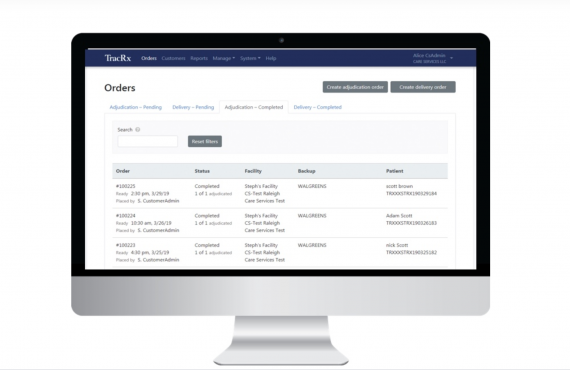Is your pharmacy prepared?
Hurricanes and other extreme weather, such the wildfires currently burning in California, can cause long-term care facilities and pharmacies to lose power, evacuate or suffer other damages.
In the United States, May through October is typically classified as wildfire season, but fires can occur at any time during the year. October is the most dangerous month for wildfires. According to Cal Fire, California’s primary firefighting agency, seven of the ten worst wildfires in California history, measured by the number of structures burned, occurred in October.
Similarly, hurricane season occurs between June 1 – November 30 in the Atlantic and between May 15 – November 30 in the Pacific. Yet, September is the most active month for hurricanes on both coasts. With current weather developments currently being monitored in the Atlantic and Pacific oceans, it’s a good time for pharmacies to review your emergency preparedness plans.
The long-term care industry as a whole is well prepared for severe weather events, with requirements from The Centers for Medicare and Medicaid Services (CMS) to support preparedness and protect our nation’s most vulnerable and medically fragile residents. In 2017, CMS’ Emergency Preparedness Requirements for Medicare Participating Providers and Suppliers went into effect. These regulations outline the requirements for all providers and suppliers in regard to planning, preparing, and training for emergency situations.
When long-term care facilities are preparing for a potential weather event, their plan should include:
- Ensuring appropriate stock of emergency drug kits
- Stocking a 5 to 14-day supply of medications for all residents
- Maintaining paper-based records of each resident’s medical profile that includes their medications, dosage and frequency
- Planning for evacuation and a secure way to collect and transport medications
Pharmacies are important partners to long-term care facilities when emergency planning begins, but it’s equally as important for long-term care pharmacies to be prepared as well.
Backup pharmacy partners are an important part of a long-term care pharmacy’s business continuity plan.
In cases of natural disaster or other weather emergencies, backup pharmacy partners can:
- Provide backup coverage should your pharmacy suffer damages from the storm
- Move prescription processing to an alternate pharmacy location if facility residents are relocated to another city
- Coordinate prescription processing at operating pharmacies, providing patients continued access to needed medications until normal operations resume
- Provide delivery of medications for your pharmacy or for backup medications processed at our retail pharmacy network locations
At Care Services, we also maintain a comprehensive business continuity plan, which includes moving our operations to an alternate location should our corporate office be at risk. This occurred in 2018 when Hurricane Florence was projected to make landfall on the North Carolina coast. Even though our corporate headquarters in Raleigh is inland, the forecast still called for high winds and potential flooding, so we relocated our employees to Atlanta to make sure that we could maintain 24/7 operations in support of our customers. We review our business continuity plan at least annually to ensure suitability for any type of event and we encourage our customers to do the same.
We will continue to monitor storm systems and work with our clients as weather systems develop. As you make your preparations, let us know how we can help.





























